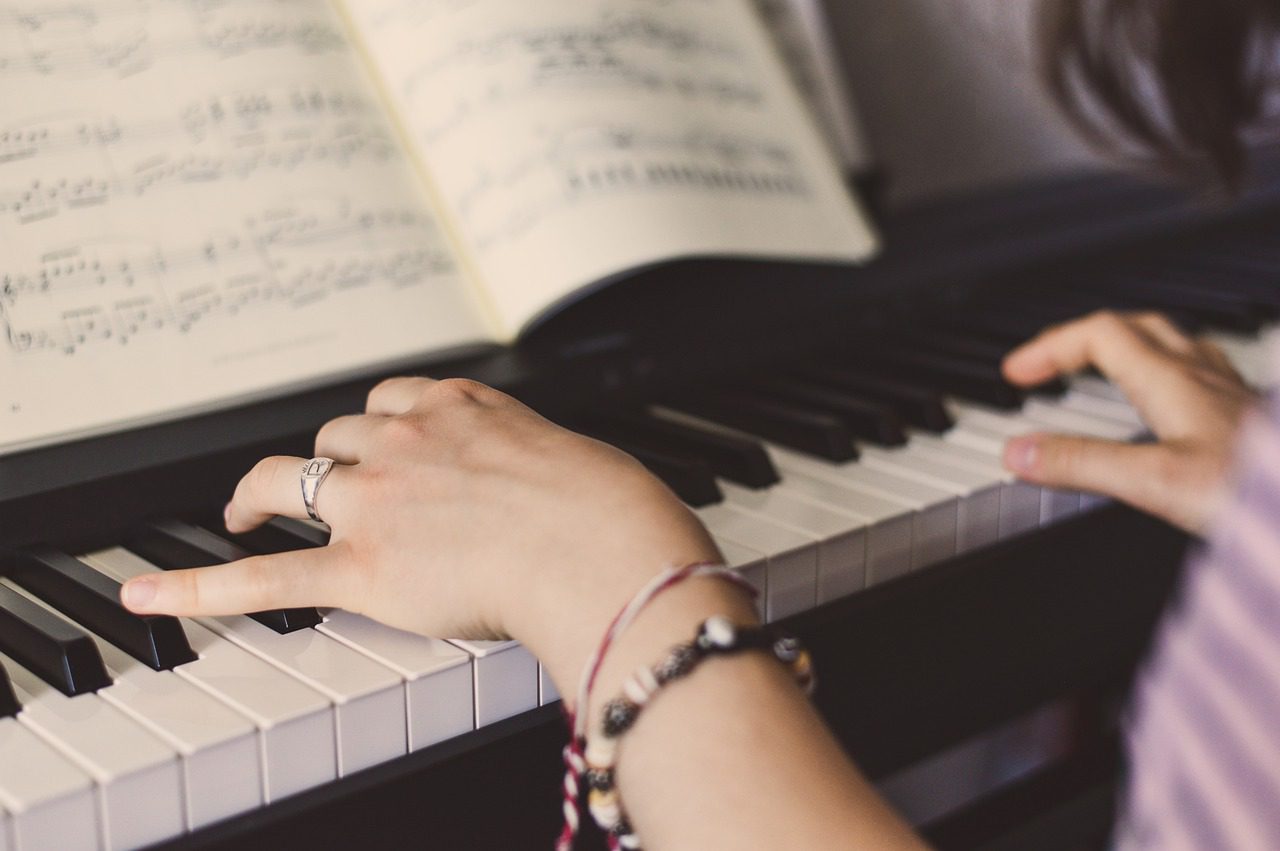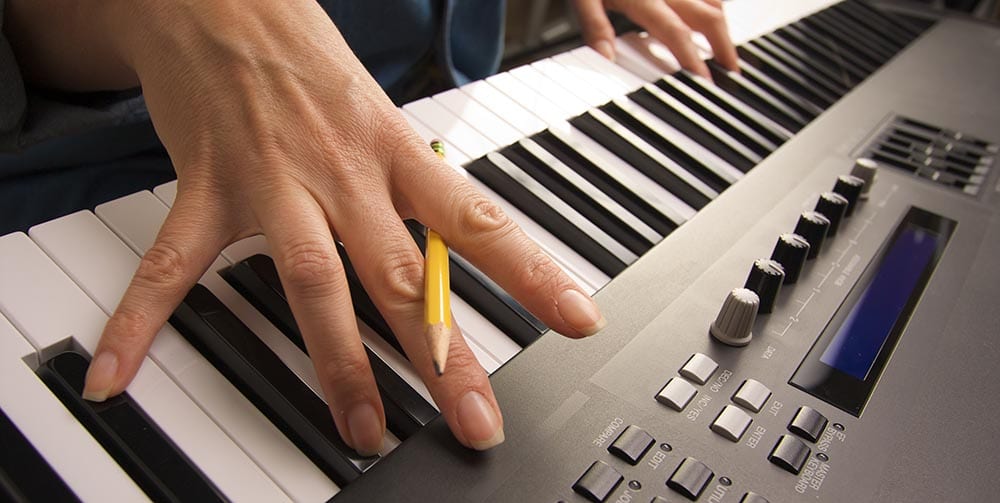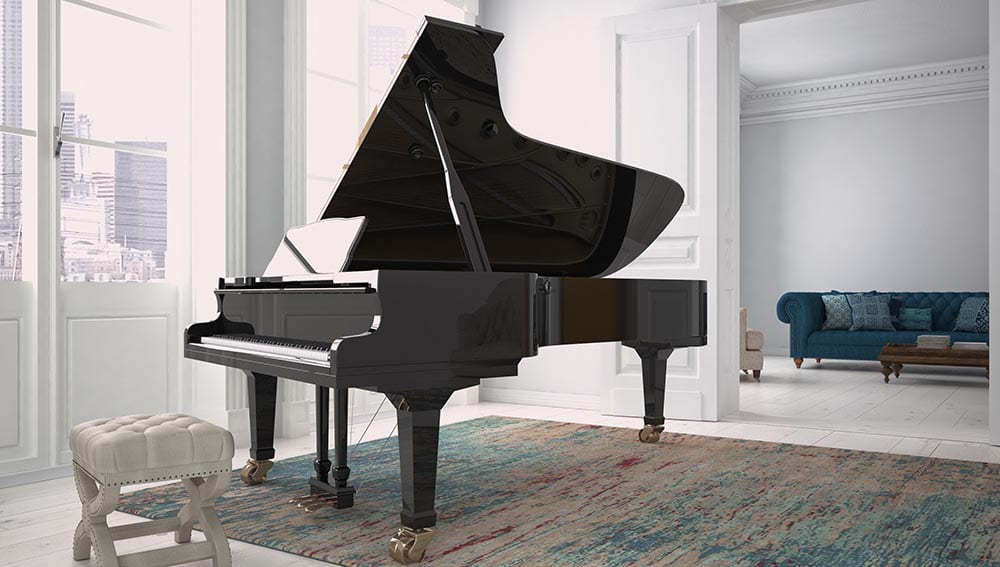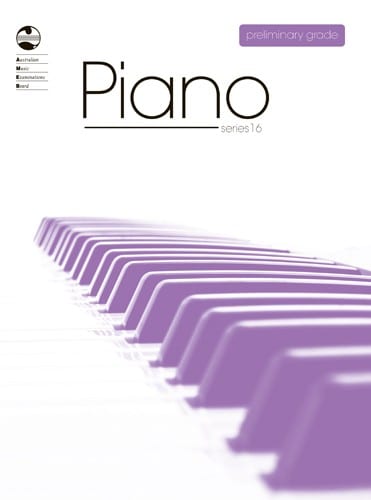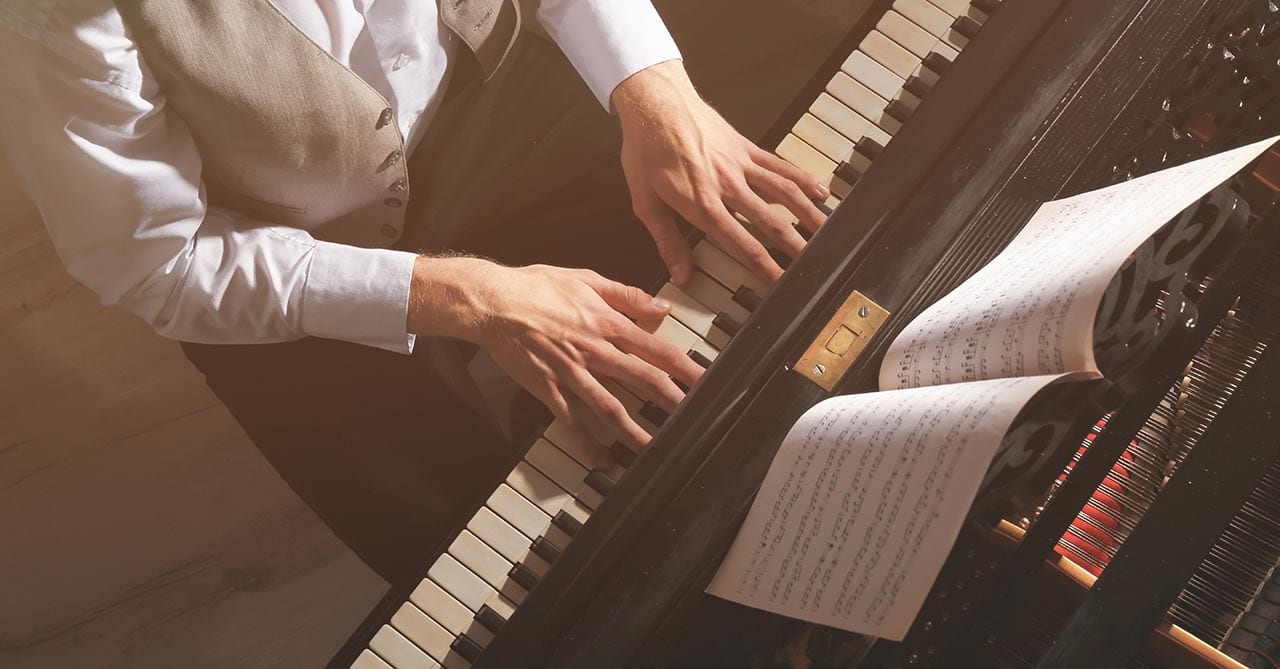The team here at Pianoforte has put together this quick guide to five of the most popular and important piano styles to help you decide which is best for you to learn.
1. The Foundations – Classical Piano
From 1750-1820 classical piano music was performed for royalty and the upper class in Europe, with music written by some of the era’s greatest composers such as Mozart, Beethoven, and Bach.
Classical piano, like all classical music, is largely homophonic – with a single, clear melody line supported by a chord structure. Although the term ‘classical’ is commonly used to refer to everything from classical to baroque to modern minimalist music.
Classical technique and theory is the foundation of most modern music, and is the place almost every piano teacher will recommend new students start. A solid understanding of classical piano is a great grounding for learning all other styles.
2. Breaking All the Rules – Jazz Piano
Jazz sprang into life in the USA in 1918, and music was changed forever. A rebellious, energetic music, jazz subverted all the rules of rhythm, harmony, and technique prevalent at the time. The piano has played a large role in jazz from the beginning, with luminaries such as Art Tatum, Bill Evans, and Thelonius Monk pushing the instrument in new, exciting directions.
In the process of breaking the old rules of music, jazz created its own complex musical forms. Mastery of jazz requires vast rhythmic and harmonic knowledge, and a deep understanding of many scales and modes and how they interact with almost endless chord variations.
Jazz is one of the most versatile and fun styles of piano to learn, but it will require real work and dedication.
3. Think Quick – Musical Theatre Piano
The piano has always been central to musical theatre. It is the most popular instrument for composition, is essential for successful rehearsals, and often plays a central role in performance too.
Piano for musical theatre is as much about a mindset as a style. Musical Theatre pianists need to be amazing sight-readers, stylistically versatile and have the ability to think on their feet.
This style is best attempted by students who are already proficient in reading and technique from a classical background. If you do want to jump straight into musical theatre piano, be prepared to sweat!
4. Back to the Roots – Blues Piano
Classical music may be the foundation of music technique, but blues is the roots of modern music’s heart and soul. Great blues piano players like Memphis Slim, Ray Charles, and Victoria Spivey made their keys weep and contributed to the popularity of blues, which in turn gave birth to rock’n’roll.
The blues revolves mostly around pentatonic scales and simple chord progressions.
Though blues is easy to understand, it is hard to master. To be a great blues piano player you need to be able to improvise, have a great sense of rhythm, and most importantly you need to play with passion.
5. Dancing on the Stool – Rock and Pop Piano
Rock‘n’Roll music is most commonly associated with the electric guitar, but the piano has been there all along too. From the wild antics of Jerry Lee Lewis seemingly trying to destroy his piano while playing white hot rock‘n’roll tunes to the synthesiser revolution of the 70s and 80s, the piano and its cousin the keyboard have played an important role in rock and pop music.
The rock and pop piano styles take their cue originally from blues piano, with simple chords, pentatonic scales, and driving rhythms. Though this sounds simple, modern rock and pop music includes elements from classical music, jazz, and world music, and requires a good ear and the ability to improvise.
Don’t Limit Yourself
While each style requires time and dedication, there’s no need to limit yourself to just one. The more styles of piano you can play, the better musician you will be and the easier it will be for you to get gigs. Contact us if you want to discuss piano lessons with Pianoforte. Call us on 02 9411 8911.



 June 9, 2016
June 9, 2016
